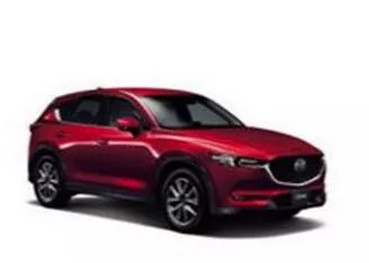HC Plastics News: Citing foreign media reports, Mitsubishi Chemical Co., Ltd. and Mazda jointly developed a new bio-engineering plastic Durabio-bio-based polycarbonate with high colorability and excellent impact. Strength, weather resistance and scratch resistance, the material has been successfully applied to a variety of automotive interior and exterior trim. Mazda and Mitsubishi Chemical cooperate to develop bio-based engineering plastics for large automotive parts molding It is understood that the new bio-engineering plastic jointly developed by Mitsubishi Chemical Co., Ltd. and Mazda is called Durabio-bio-based polycarbonate, which is suitable for molding large automotive parts. The new Durabio-biobased polycarbonate is based in part on isosorbide, which is derived from sorbitol, a widely used natural raw material. Mazda uses this material for the front grille of its new CX-5 automotive compact crossover. Previously, French car manufacturer Renault used Durabio resin in the new-generation Renault Clio, which was launched in June 2016, using a speedometer-tachometer combination. The properties of Durabio resin are similar to those of engineering plastics. The tensile modulus is usually in the range of 2300~2700MPa, the tensile strength ranges from 64 to 79MPa, the flexural modulus ranges from 2100 to 2700MPa, and the flexural strength is in the range of 94~116MPa. . The transparency of the material also means that it is highly pigmentable, the pigment is dispersed in the colored compound and does not require painting. In addition, it is said that its impact strength and weather resistance are superior to 100% petroleum-derived engineering plastics, while high surface hardness gives the material good scratch resistance. In addition to the above two applications, Mitsubishi Chemical reported that the material has also been successfully applied to a variety of automotive interior and exterior trim, including pillars. The latest grade of bio-engineered plastic Durabio developed by Mazda and Mitsubishi Chemical has been improved to further improve its performance balance in impact strength, weatherability and processability, enabling the formation of such large parts. Mazda plans to use this grade of engineering plastics in future models, and Mitsubishi Chemical intends to further develop the application of Durabio-bio-based plastics in large automotive parts. (Compiled by Li Jiangnan, Beijing University of Chemical Technology) Editor in charge: Ye Dan Carbide Conical Button,Carbide Mining Button,Tapered Carbide Buttons,Tungsten Carbide Conical Button Zhuzhou Kerui Cemented Carbide Co., Ltd. , https://www.carbide-china.com
